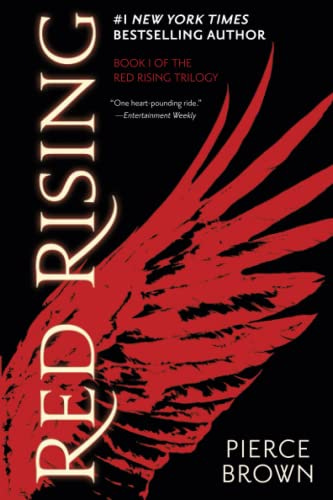Decision Demons, TikTok, and Emoji Watches
Monthly Wrap from March
Another month, another host of great articles, listens, books and other finds from Product Thinking and around the internet. Here’s what you may have missed.
Product Thinking
Why We Can't Have Nice Things: Curiosity, TikTok, and Free Speech
We recently got to see the ignorance of the US Congress on full display. They don’t understand Wi-Fi, social media, or technology. But they do understand money. And if you can pay them, they will do whatever you want them to. Including shutting down competitors or shutting down free speech.
If you’re concerned about your data ending up in the wrong hands, I’ve got bad news for you about the internet… Which is what congress should focus on—data privacy and security. But singling out a single app or platform is pure theater.
3 Lessons from Silicon Valley Bank
Speaking of theater and tragedy, it’s been quite the month, hasn’t it? SVB failed in classic bank fashion. But there were some good lessons in it for the rest of us.
Finding Whole-Life Balance
But not everything we wrote about was bleak. We took some time to discuss burnout, balance, and what we need to do to ensure we’re maintaining our the right energy in our lives.
Balance is about the whole picture of your life. We have to ensure we are maintaining our energy reserves to avoid burnout and actively finding balance each day. If we get out of balance or find we are spending too much of our energy without refueling, then we need to reassess where we’re at, what we’re doing, and what we need to do going forward.
Life is Hard: Book Review
And of course, we reviewed the book Life is Hard by Kieran Setiya this month.
I’ve been having many conversations with friends and former coworkers about the recent layoffs happening around the technology industry, which have impacted many of us, myself included. In the grand scheme of life, being laid off from a job is far from the hardest thing many of us will face, but it is still emotionally difficult, and like any major life event, can cause significant stress to us and those around us.
Life is incredibly hard. We can only choose to live well within the constraints we have. Often those will be less than the ideal that many would envision. But as we shift our mindset away from the idea of ourselves as failures, as projects that need completion, as people who need to be perfect, we can progress, empathize with each other, and create meaningful lives.
Other Articles
A Short History of Artificial Intelligence
With recent advances in machine learning, we could be entering a period of technological progression more impactful than the Scientific Revolution and the Industrial Revolution combined. The development of transformer architectures and massive deep learning models trained on thousands of GPUs has led to the emergence of smart, complex programs capable of understanding and producing language in a manner indistinguishable from humans.
What really changed the game for the entire field was the internet. Extremely powerful computers were necessary but not sufficient for the development of the sophisticated models we have today. Neural networks needed to be trained on thousands to millions of samples, and it would take an iPhone in everyone’s hand to produce a growing hive mind of images, text, and videos uploaded as digitized files to provide training sets sufficient in size to teach an AI.
Red Teaming Improved GPT-4. Violet Teaming Goes Even Further
I’m a big fan of the idea of red teaming, and we’ve discussed the idea here before. So I really enjoyed this article on red teaming for GPT-4, and how we can make all our systems more robust by testing them better.
“Red teaming is a valuable step toward building AI models that won’t harm society. To make AI systems stronger, we need to know how they can fail—and ideally we do that before they create significant problems in the real world. Imagine what could have gone differently had Facebook tried to red-team the impact of its major AI recommendation system changes with external experts, and fixed the issues they discovered, before impacting elections and conflicts around the world. Though OpenAI faces many valid criticisms, its willingness to involve external researchers and to provide a detailed public description of all the potential harms of its systems sets a bar for openness that potential competitors should also be called upon to follow.”
The Data Delusion
We’ve uploaded everything anyone has ever known onto a worldwide network of machines. What if it doesn’t have all the answers?
I’d argue that it can’t have all the answers, which is both scary and exciting. Especially when we break down the different types of knowledge, like this article does.
Good Listens
Service Design, UX, and Change Management - A Conversation with Justin Zalewski
What are the most important questions a business needs to ask itself, and what are the biggest barriers to change? In this episode, we explore how service design can help answer those important questions and be a force for change within any organization.
Service design is a connector between the disciplines of UX design, UI design, product, engineering, customer experience, etc. While many of the principles of good service design aren’t exclusive to service design, there is an emphasis on co-creation, iteration, people-centricity, and a holistic perspective.
Accelerating Your Career Through Coaching - A Conversation with Founder and CEO Zach White
Breaking out of the downward spiral of more and more work that leads to burnout, and transforming our approach to focus on a better process and better approach to work and life, is key to success and happiness. For those of us who have experienced burnout, we understand how difficult it can be. And the need to constantly be evolving and improving the way we approach work and life.
Building Companies, Going to Market, and the Future of Audio and Podcasting
Creating amazing products often comes down to the right timing, the right technology, and the right customer demand. It also means pivoting and iterating based on feedback and unexpected use cases. Which is how Nomono has grown and expanded. In this episode, we discuss growing a company, finding the right technology and the right team to build it, and understanding the trends in the market to stay ahead of what’s next.
Creating a Product Vision and Using Metrics to Align Product Teams
Google has a long history of putting customers first, thinking about the long-term, and being design-centric. Those values are part of the core product culture and help define how many products get built and go to market. In this episode, Neha and Kyle discuss product management processes and practices, talking to customers frequently, and establishing a product vision.
How Your Beliefs Shape Reality
This was a really interesting podcast as well. Our beliefs definitely shape how we see reality.
As you move through the world, it’s inevitable that your way of seeing things won’t always align with the people around you. Maybe you disagree with the way your neighbor raises her kids, or find your brother’s politics to be troubling. But you may not realize how much your core beliefs shape your perception of the world. This week, we talk with psychologist Jer Clifton about how our beliefs shape our reality — and how we can use this knowledge to live happier and more harmonious lives.
Books
Red Rising Series
In one of my most recent podcast interviews, Justin recommended this series. I finished reading the first two books so far. If you enjoy the Ender’s Game saga or Hunger Games, this definitely has a similar feel. The first book was excellent. The second book dragged a little for me and seemed like the characters lost some of their individuality for the sake of the narrative, but overall a good series so far.
Interesting Finds
There is a huge annual watch event happening now in Switzerland—Watches and Wonders. I wish I was there, because it looks like a blast. But one thing that has taken everyone by surprise was a new Rolex emoji watch. For around $30,000 (which you’d be lucky to get one at that price), you could own a day-date watch that replaces the date with an emoji and the day with phrases like “love”, “gratitude”, etc. that rotate through. Not quite what you’d expect from an austere brand like Rolex, but we live in interesting times.
I’m not a big Rolex person myself, but I think I’ll hold out for a platinum Daytona still.








